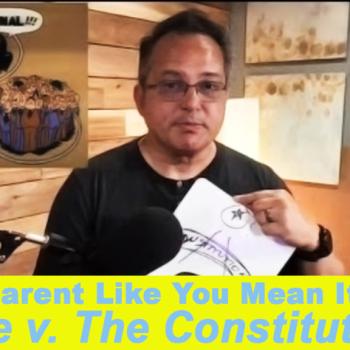When I hear the word “judge”, I think of a short-circuited party scene. You know, where everyone is dancing and having a good time until the mom comes in, turns off the music and everything stops prematurely. A fun time is ruined and everyone has to go home.
That’s how I fell when I’m being judged, when I’m watching someone being judged, or when I’m judging somebody myself.
It’s like sitting on a ball of fun and popping it. There just really isn’t room for judgment.
Which is why it was so refreshing when Pope Francis, regarding homosexuality, said, “If they accept the Lord and have good will, who am I to judge them? They shouldn’t be marginalized.”
And it’s true. We, as humans, shouldn’t be marginalized. We shouldn’t marginalize. It’s not our job.
So, why do we do it?
We could dance around it and say, “It’s a narcissistic, navel gazing, ego tripping, comparative culture. I mean, have you seen what we tweet about?
“O.M.G! Making cinnamon rolls for breakfast! #delish!”
Have you seen what we judge people for tweeting about?
But if we cut to the root of it, I think you’ll find that pride is the root of our vain ego and entitlement to compare ourselves to those around us. And as long as our pride is inflated, as long as we’re doing better than the next person, we’re okay. So we feed this comparative hubris with our ability to judge and discern who we are against someone else. We denote who is “lesser than”, and why, and we expel them from our ranks.
That’s not our job.
It reminds me of John, chapter eight when Jesus faced a mob that was eager to execute a woman caught in adultery. He put a stop to it with a simple challenge, saying, “Let any one of you who is without sin be the first to throw a stone at her.” So of course, no one could.
Similarly, in C.S. Lewis’ “Mere Christianity”, he concludes in his chapter on pride saying, “If you think you are not conceited, you are very conceited indeed.”
It really makes me stop and wonder who are we to judge?
When we come from a simple place and are in desperate need of a Savior – and everyone comes from this place – we have nothing to compare ourselves to. We have no one to be “greater than”.
When I look at the gay community with my younger pair of eyes, I see an array of Christ-like people. Sometimes they seem more “Christ-like” than the actual Christian community, itself.
I think that the rift between the two communities exist because both parties feel judged, excluded, and hated by the other.
But it’s not our job to judge, compare or accuse each other. We don’t have the authority to do that.
In fact, Paul writes in 1 Thessalonians 5:11, “Therefore, encourage one another and build eachother up…”
That’s what we’re asked to do. That’s who we’re asked to be.
THAT’S our job.
So maybe everyone needs to ask, “Who are we to judge?”














